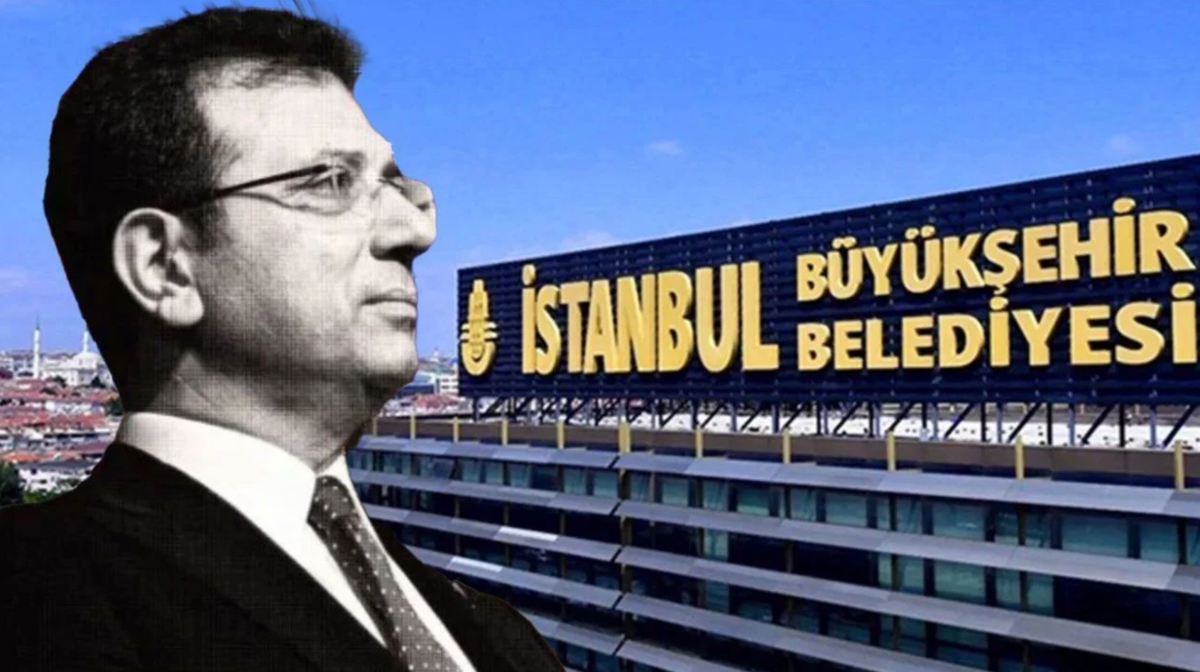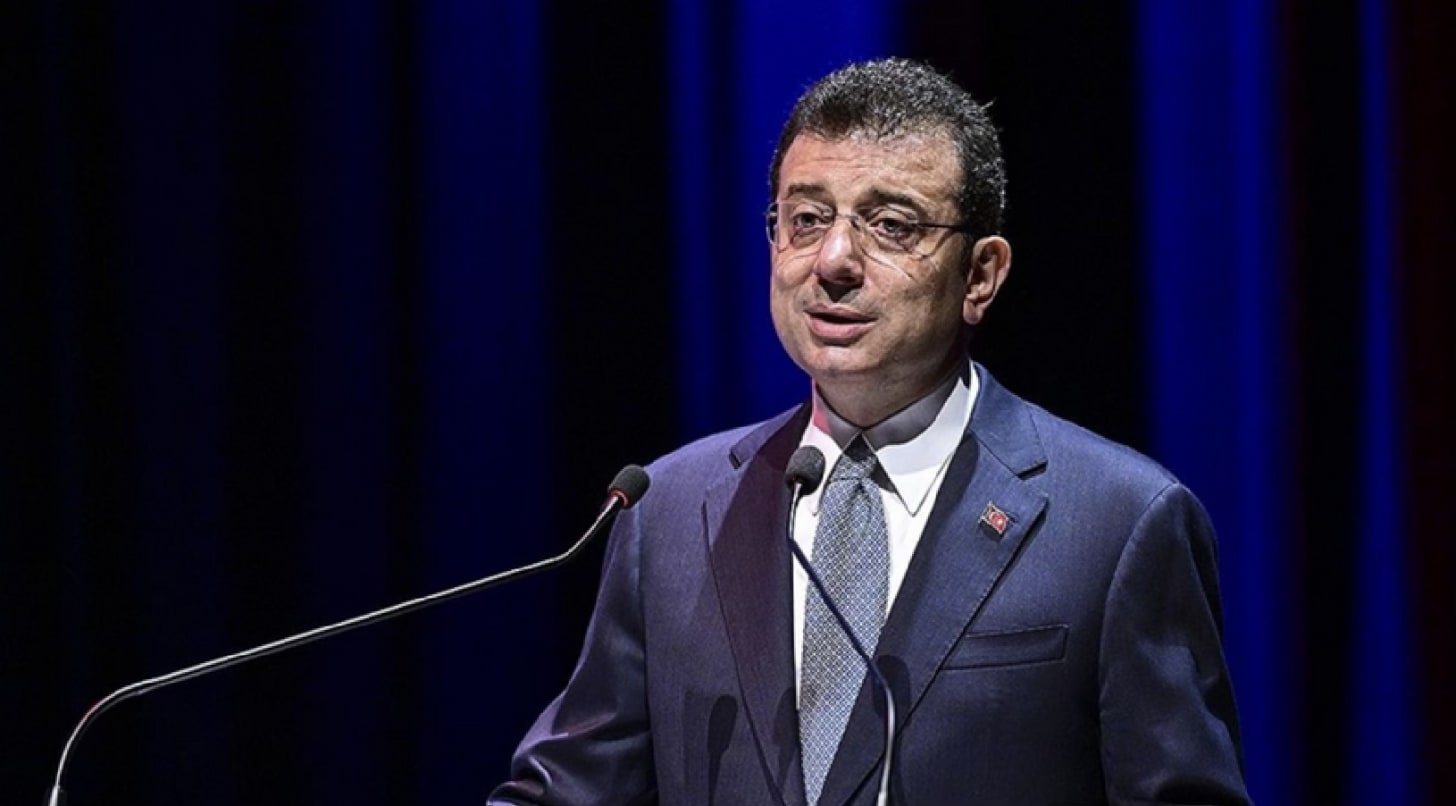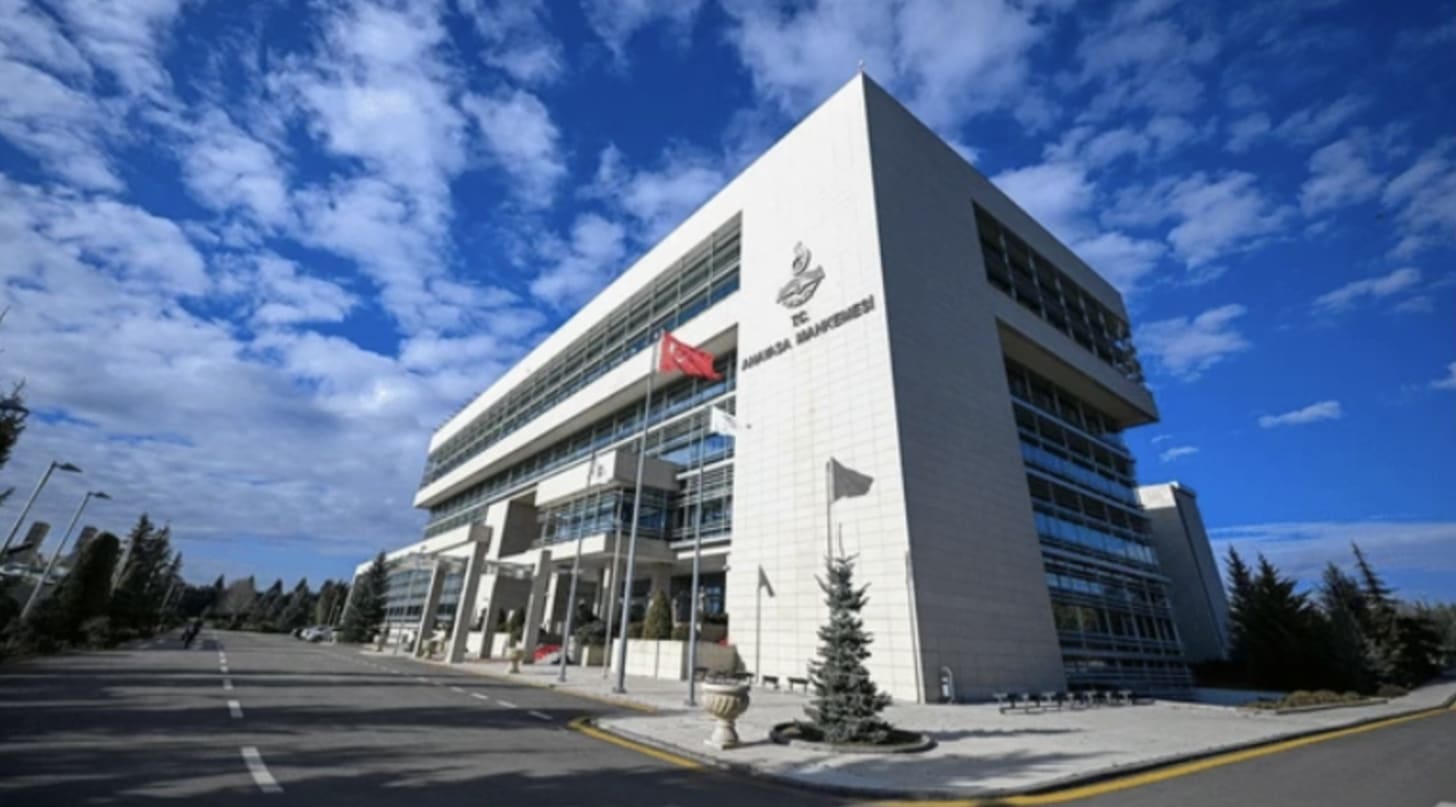All is now out in the open. Before the eyes of an increasingly indifferent “democratic world,” Turkey’s ruling bloc — President Erdoğan’s AKP and Bahçeli’s MHP — is accelerating the dark beats of oppression.
November 10–11, 2025 may mark a new threshold in this downward spiral. Two developments overshadow all others: a massive graft indictment targeting the opposition, and a Constitutional Court decision that cripples judicial oversight.

Agrandissement : Illustration 1

A sweeping graft indictment has shaken the country. Ekrem İmamoğlu, the already jailed Mayor of Greater Istanbul, now faces between 846 and 2,352 years in prison for corruption, fraud, and rigging public tenders.
The 3,700-page indictment, unveiled on Tuesday, portrays him as “head of a criminal organization” likened to an “octopus.” It names 402 suspects accused of “forming a criminal organization.”
Prosecutors went even further: they invoked Article 69 of the Constitution, notifying the prosecutors of the Cassation Court to consider a closure case against the CHP, Turkey’s main opposition party.
“The indictment you wrote is nothing but lies lined up, threatening people, holding them hostage, forcing them to slander under pressure,” İmamoğlu said, calling on Parliament to ensure that court proceedings are broadcast live by state TV.
Prosecutors had already filed espionage charges against him last month, alleging links to a businessman suspected of working for Britain’s MI6.
Meanwhile, Istanbul University annulled his diploma over a procedural issue from three decades ago — a move that could bar him from future presidential bids, since a university degree is required.

The politically driven, relentless legal pressure on the 54-year-old politician has clearly multiplied. Given Turkey’s rising authoritarian wave, his chances to remain in politics are, at best, minimal.
CHP leader Özgür Özel called the indictment “not an indictment, but a memorandum by the coup plotters targeting politics,” adding that “this time, the coup plotters have come not with tanks or boots, but in judicial robes.”
The focus on İmamoğlu reflects a familiar pattern: no real challenge shall be allowed in the race for the presidency in Turkey.
Selahattin Demirtaş, the charismatic Kurdish leader once seen as a rival to Erdoğan, was forced to lose his parliamentary immunity in 2016 and has spent nine years in prison. İmamoğlu fears a similar fate.
Even Mansur Yavaş, the Mayor of Ankara, with an ultra-nationalist background, and another popular name, reportedly feels the heat. Strong rumours in Ankara suggest he has discreetly, timidly signalled to Erdoğan’s palace that he does not intend to run in future elections.
The main opposition sees the charges as an existential threat. Özel now faces two options: continue defending İmamoğlu and present him as the CHP’s next candidate, or step in himself — though, given the current climate, he might face a similar fate.
The indictment’s sheer density — nearly 4,000 pages, 400 suspects, and more than 75 secret witnesses — guarantees a lengthy process, likely stretching five years or more.

Agrandissement : Illustration 3

It serves two strategic purposes.
First, the DEM is currently engaged in Erdoğan’s so-called “Terrorless Turkey” process, which seeks to use jailed PKK leader Abdullah Öcalan’s patriarchal influence to dismantle the organization.
Despite a year with little tangible progress, if any at all, DEM leaders remain enthusiastically focused on “freeing Öcalan,” showing deference to the ruling bloc, while only murmuring low-key discontent over the repression of the CHP and dissidents. This widening fault line between CHP and DEM clearly benefits the government.
Second, the Imamoğlu case buys time for the Erdoğan to prepare for the 2028 elections. With the opposition fragmented or co-opted, the ruling bloc can push through constitutional amendments lifting presidential term limits.
About a month ago, President Erdoğan mentioned, in passing, that a “commission” designed by his party and composed only of AKP figures, was already working on draft amendments. If successful, it would pave the way for “eternal rule.”
Given Erdoğan’s proven skills for bold political engineering, it very well can.

Steps in that direction become visible as time goes by. Overshadowed by the İmamoğlu affair was a major decision by Turkey’s Constitutional Court (AYM) on November 11, concerning the election of five members to the Council of Judges and Prosecutors (HSK) — the body that oversees the judiciary.
In a surprise move, the Court rejected a motion by the CHP, ruling by 11 votes to 4 that the issue lay outside the scope of AYM’s constitutional review.
In plain terms, the Court thereby declared that it would not review Parliament’s decisions — effectively surrendering its power of oversight.
Legal scholars say the ruling opens the way for the parliamentary majority to make any regulation simply by calling it a “parliamentary decision,” shielding it from judicial scrutiny.
“Goodbye Constitution!” wrote criminal law expert Adem Sözüer, arguing that the decision “limited the high court’s own authority.”
CHP vice-chair, and lawyer, Murat Emir warned that “HSK and other judicial councils could from now on be shaped according to political majority — without legal checks. With the AYM withdrawing, an unchecked and hard-to-reverse arbitrariness regime will spread in Turkey.”
Constitutional lawyer Özge Fındık added:
“Now Parliament can implement any arbitrary act it wishes. Acts such as appointments, disciplinary actions, investigations, or even redefining the powers of constitutional bodies could fall under this, and no court could intervene. This effectively creates a new legal regime: unmonitored, unrestrained, based solely on the majority’s will.”
Another expert and scholar, Tolga Şirin, offered a chilling example:
“Suppose Parliament decides to host U.S. troops in Turkey, or about emergency rule periods which are extended repeatedly. The top court could decide not to review these either. This means, for example, the state of emergency can turn into a permanent governance style. This, though not openly stated here, is constitutional absolutism.”
The implications may be immense. By refusing to review parliamentary acts, the Constitutional Court has legitimized “rule by majority will”, dismantling the last institutional safeguard.
The European Commission’s recent enlargement report had already criticized the flaws in HSK’s “politicized” structure and the erosion of judicial independence.
Yet Ankara continues to ignore it. Now, with the top court’s retreat, the erosion of checks and balances seems complete.
What remains is a façade of democracy masking total executive dominance. The parliamentary majority can legislate without restraint; the judiciary, stripped of authority, has become a procedural ornament.
The two developments — the criminalization of the opposition and the judiciary’s “self-neutralization — lay bare Turkey’s trajectory.
The Imamoğlu case displays further elimination political rivals and intimidation of dissent. The Constitutional Court’s abdication grants legal impunity to the ruling bloc. Together, they cement a system where no institution can challenge the executive.
Turkey is now moving at high speed from majoritarianism toward constitutional absolutism — a regime where law serves power, not justice — as its Western allies look on in silence.



